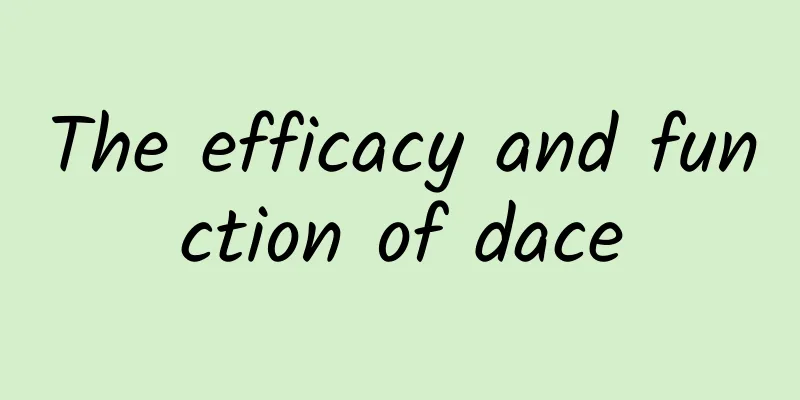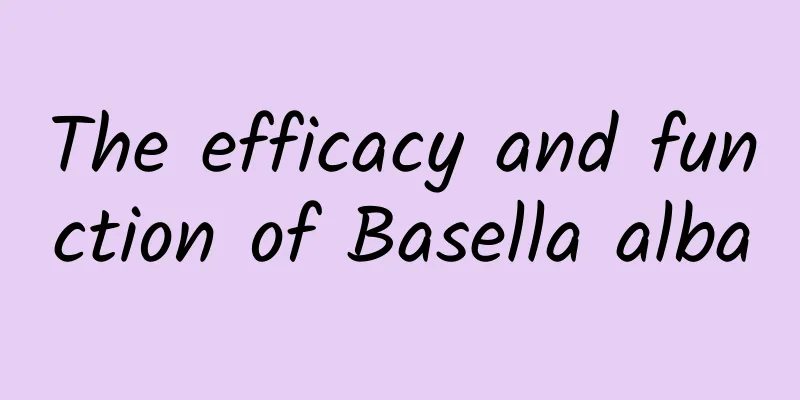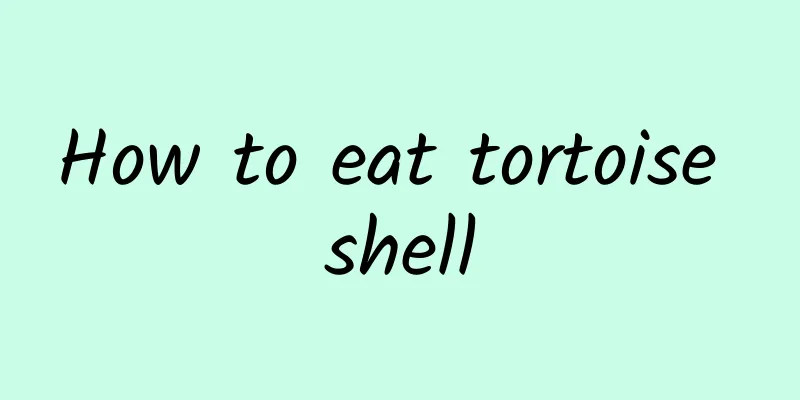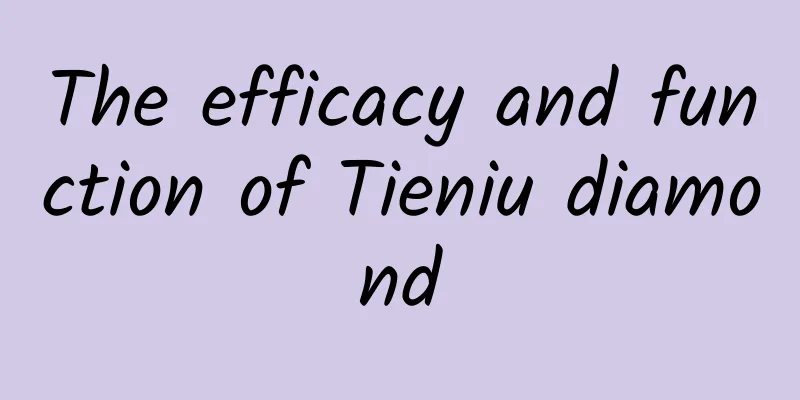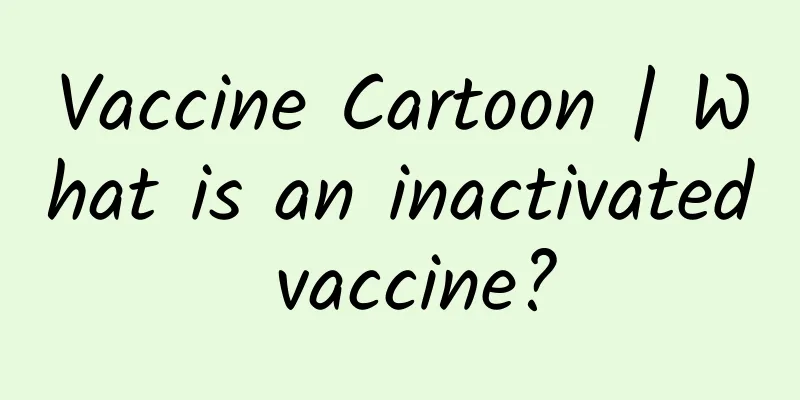The efficacy, effects and edible methods of Schisandra chinensis
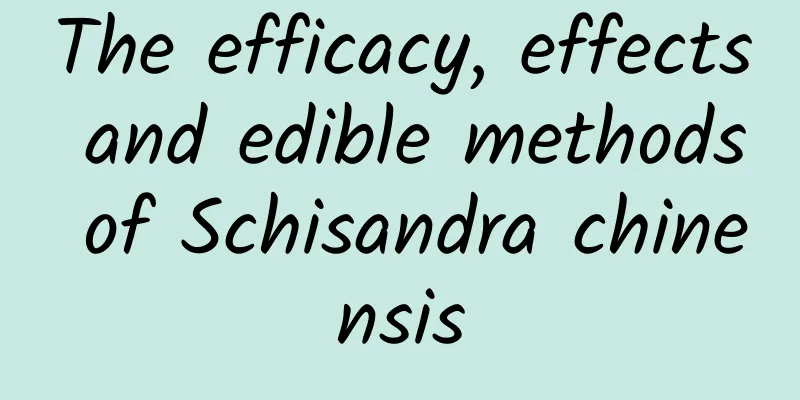
|
There are many kinds of medicines, and now medicines are divided into Western medicine and Chinese medicine. These two kinds of medicines have the same effect in treating diseases, which can improve various diseases of the human body. Western medicine treats diseases quickly, while Chinese medicine treats diseases slowly. When choosing them, you also need to choose according to your own disease conditions. Schisandra chinensis is a kind of Chinese medicine. What are the effects, functions and methods of consumption of Schisandra chinensis? There are many aspects to the efficacy, effects and edible methods of Schisandra chinensis. When choosing it, you should also be careful not to use it casually. You must use it according to regulations so that the disease can be well improved. The efficacy, function and edible method of Schisandra chinensis : Effects of Schisandra chinensis: It can nourish the lungs, nourish the kidneys, promote the production of body fluids, reduce sweat, and astringe semen. It is used to treat lung deficiency, wheezing, coughing, dry mouth, thirst, spontaneous sweating, night sweats, emaciation due to overwork, nocturnal emission, spermatorrhea, and chronic diarrhea and dysentery. (1) Strengthening the lungs and relieving cough: It is used to treat cough and asthma caused by deficiency of both lung and kidney, and is often used in combination with kidney-tonifying drugs. (2) Astringent and antidiarrheal: used for spermatorrhea and chronic diarrhea. For treating spermatorrhea, it is often used with mulberry silkworm cocoon and calcined dragon bone; for treating chronic diarrhea, it is often used with nutmeg and water chestnut. (3) Producing body fluid and arresting sweating: It is used to treat dry mouth and night sweats due to insufficient Yin fluid, and is often combined with Ophiopogon japonicus and raw oysters. (4) All cases of shock and collapse caused by depletion of Qi and blood can be treated with tonic medicine. ① "Ben Jing": It is used to invigorate Qi, treat cough and shortness of breath, fatigue and weakness, replenish deficiency and strengthen Yin. Function 1 of Schisandra chinensis : 1. Effects on the central nervous system Schisandra chinensis has a significant sedative effect. Schisandra chinensis extract and schisandra chinensis alcohol can reduce the autonomous activity of mice, prolong barbiturate sleep time, inhibit animal aggressive behavior, and counteract electric shock and chemical convulsions. The effect is similar to that of tranquilizers. It also has analgesic and muscle relaxant effects. 2. Liver protection Schisandra ethanol extract and schisandra chinensis A, B, C, alcohol A, alcohol B, ester A, ester B, etc. have obvious protective effects on animal liver cell damage caused by chemical poisons, can inhibit the release of transaminase, and reduce ALT activity. It can significantly induce the activity of cytochrome P-450 in mouse and rat liver microsomes. Increase liver detoxification ability. Schisandra chinensis can also inhibit the carbon monoxide generated after CCl4 is metabolized and converted by liver microsomes and its consumption of NADPH during metabolism. 3. Effects on the cardiovascular system Schisandra chinensis has a vasodilatory effect. Schisandrin, schisandrin C, deoxyschisandrin, etc. all have an inhibitory effect on the contraction of isolated dog mesenteric arteries, and can increase coronary blood flow in isolated rat hearts and anesthetized dogs. Feeding rabbits with Schisandra chinensis can regulate the energy metabolism of myocardial cells and cardiac and renal arterioles, increase the activity of myocardial metabolic enzymes, and improve the nutrition and function of the myocardium. The second function of Schisandra chinensis: 1. Anti-aging effect "Ben Cao" records that Schisandra chinensis "replenishes Qi, makes up for deficiencies, strengthens Yin, and benefits male essence." Both schisandrin and schisandrin have antioxidant effects, can scavenge free radicals and inhibit the formation of lipid peroxides. Gavage of Schisandra chinensis water extract to aged mice can significantly inhibit MAO-B activity in the brain and liver, enhance SOD activity, and reduce MDA content. Schisandrin can directly counteract the cardiac mitochondrial toxicity caused by doxorubicin and inhibit lipid peroxidation in rat brain, liver, kidney microsomes and mitochondria induced by vitamin C-NADPH. Its effect is stronger than that of vitamin E. It can also significantly increase the cAMP content in myocardial cells of elderly rats, increase the cAMP/cGMP ratio, and enhance cardiac activity. In addition, Schisandra chinensis can lower serum cholesterol and increase protein content in the brain and liver, both indicating anti-aging effects. 2. Effects on the respiratory system Schisandra chinensis can "replenish lung qi" and "calm cough and asthma". Animal experiments have shown that Schisandra chinensis decoction and Schisandrin have respiratory stimulating effects. The acidic components of Schisandra chinensis can reduce the neutral mucopolysaccharides and acidic mucopolysaccharides in the tracheal glands of mice, and have expectorant and antitussive effects. Schisandra chinensis can enhance the function of bronchial epithelial cells in mice with chronic bronchitis. 3. Effects on metabolism and immune function Schisandra chinensis can promote the synthesis of liver glycogen, enhance sugar metabolism, and increase the synthesis of liver cell protein. It promotes lymphocyte DNA synthesis, increases lymphoblast production, and promotes spleen immune function, while schisandra alcohol can enhance the immunosuppressive effect of adrenal cortex hormones and counteract allogeneic tissue transplant rejection. 4. Anti-ulcer effect: Gavage of Schisandra chinensis to rats can inhibit the occurrence of stress ulcers, reduce the ulcer index, and inhibit gastric juice secretion. Through the above introduction, we have a good understanding of the effects, functions and edible methods of Schisandra chinensis, so you can choose it with confidence. However, it should be noted that when using such medicines, they can be used in combination with other medicines, and the types of disease treatment will also increase. |
<<: The efficacy and function of ebony
>>: The efficacy, effects and edible methods of American ginseng
Recommend
What Chinese medicine is good for strengthening yang and nourishing kidneys?
In life, because many people lack physical exerci...
How did the ancients celebrate New Year’s Day?
New Year Come with the New Year's vigor Come ...
The benefits and consumption methods of deer antler
What are the benefits and ways to eat deer antler...
Is Cistanche deserticola the same as Cistanche deserticola?
At present, everyone has a certain understanding ...
Cell death, is it "suicide" or "accident"?
Audit expert: Ji Shi Life Field Observer Humans a...
The efficacy and function of nightshade
As a traditional Chinese medicinal material, even...
Effects and functions of velvet antler slices soaked in wine
Deer antler slices are a very precious Chinese he...
How to eat Dendrobium
Dendrobium, everyone knows how to use it? Do you ...
The efficacy and function of bamboo clothing
Bamboo skin is a traditional Chinese medicine. In...
The efficacy and function of white dragon head
We are all familiar with white dragon head. White...
Thoughts behind the Nanjing electric vehicle fire: Illegal parking and charging continue despite repeated bans, so why do people always take chances?
The fire in a residential building in Nanjing cau...
Difference Between Cinnamon and Cassia
Cinnamon and cassia bark are very common in daily...
What are the health-preserving Chinese herbal medicines?
For those of us who lack medical knowledge, we do...
The efficacy and function of false lychee root
False lychee root is a Chinese medicine that is r...
The efficacy of sand crawlers
Sandworms may be unfamiliar to many of you, but t...

